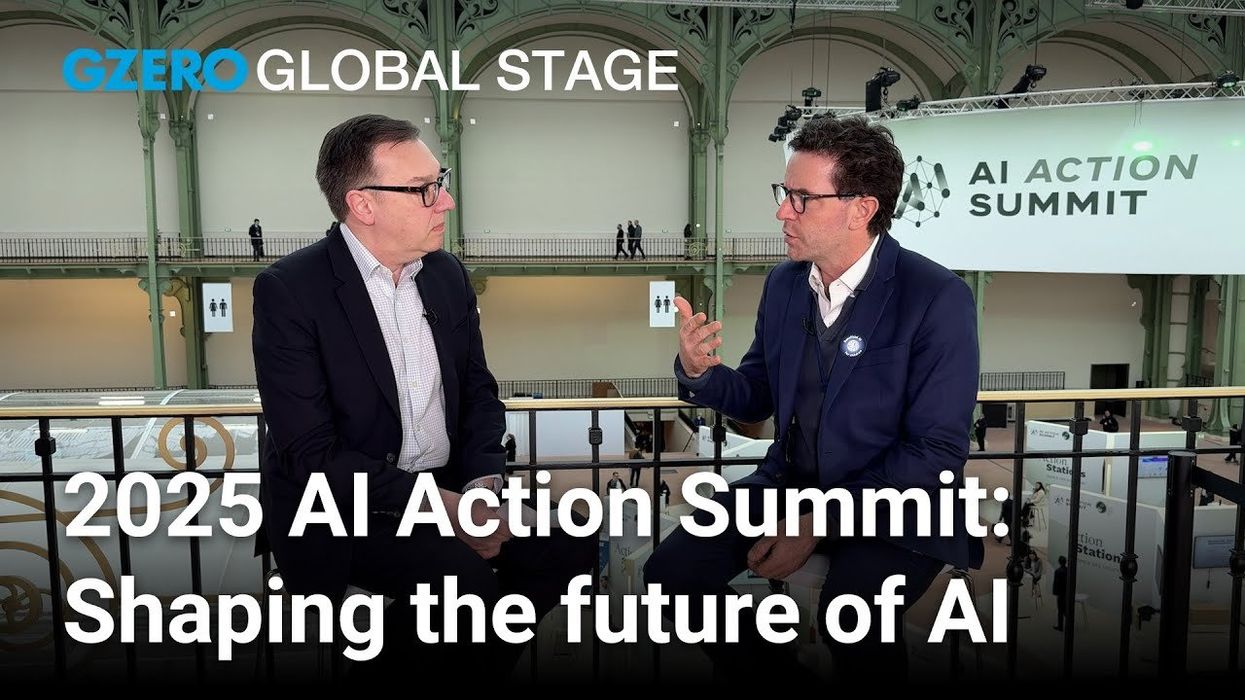AI and Society
Groundbreaking AI projects showcased at AI Action Summit in Paris
Inside the Grand Palais at the 2025 AI Action Summit, global leaders and innovators gathered to showcase how artificial intelligence is tackling some of the world’s most urgent challenges. The Paris Peace Forum selected 50 groundbreaking AI projects from over 770 applicants across 111 countries for their potential to drive positive change, GZERO’s Tony Maciulis reports.
Feb 12, 2025







